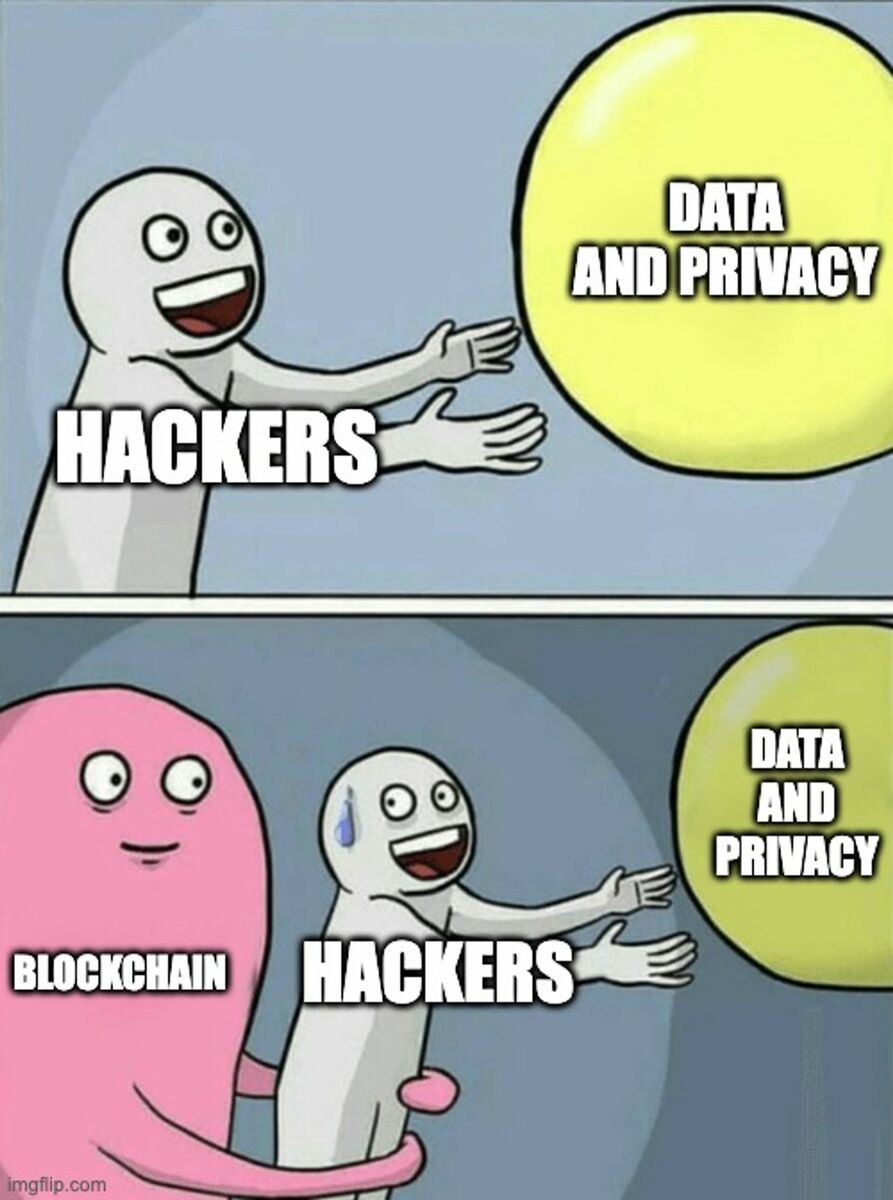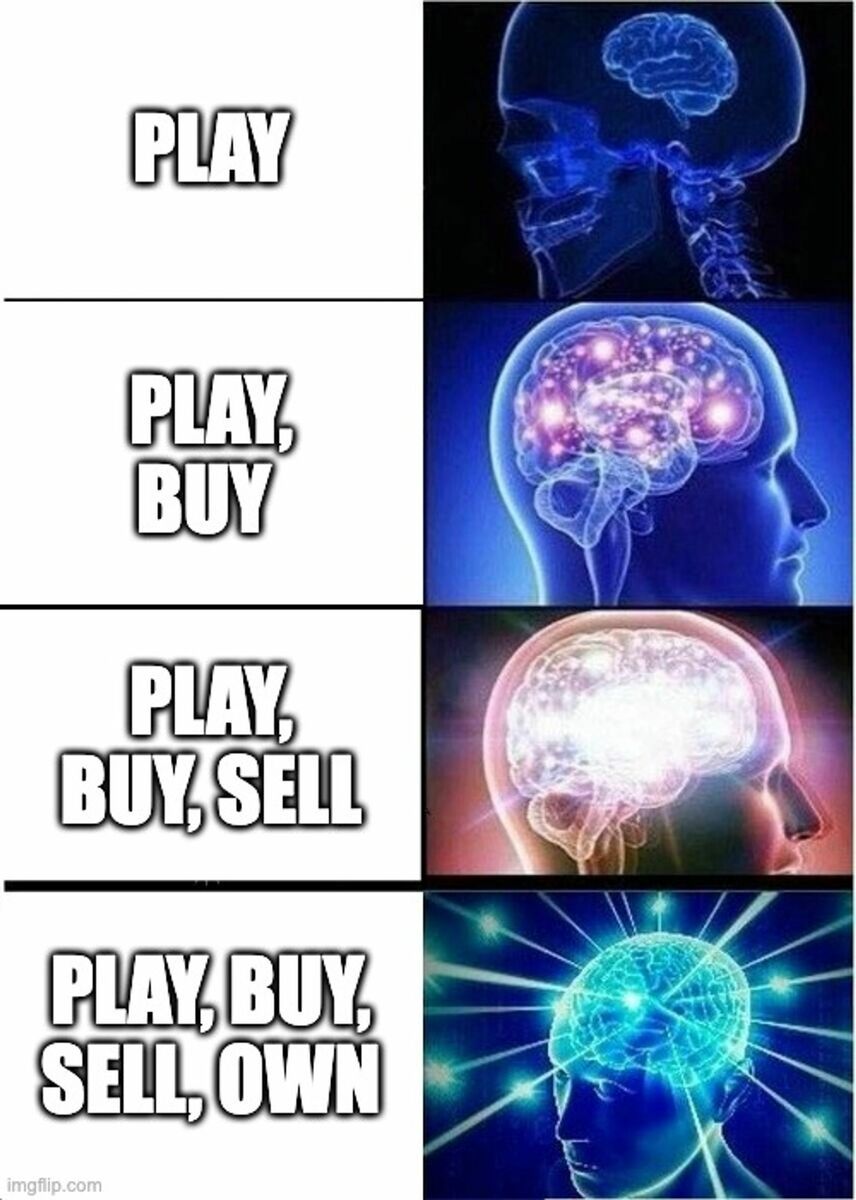- The Block Party: No Math Required
- Posts
- The Ecosystem of the Blockchain-based Gaming Industry
The Ecosystem of the Blockchain-based Gaming Industry
Welcome to the third edition of The Block Party: No Math Required!
From an early age, many of us have held a shared love for the world of video games. Every generation has games they are attached to like pong, Mario, FIFA, call of Duty, or Fortnite. What if I told you there is something better coming?
The gaming industry is always pushing the boundaries for user experience and reality. Over time, video games have evolved to create more immersive and emotionally engaging experiences by utilizing realistic graphics, sophisticated storytelling, and advanced technologies. As the gaming industry continues to evolve, game developers are finding ways to provide more freedom to players by allowing them to customize and personalize their gaming experience. This approach not only enhances player engagement but also makes the game more user-friendly.
Making a game where users can not only play by the instruction but also interact, build, and grow is quite revolutionary.
Enter Blockchain. When we hear the word blockchain we think of Bitcoin or some form of cryptocurrency. What if I told you that Blockchain is now being used in the gaming industry and it's going to accelerate and change what players can do? What makes the use of blockchain in gaming so favorable?
Gamers can use blockchain privacy and security to store in-game assets.

Centralized systems are more prone to security issues. If a hacker manages to breach the system, all of the users' data can be exposed. In contrast, a decentralized system can avoid this issue, as the data and in-game assets are stored on the decentralized blockchain.
With a decentralized system, there is no central system for a hacker to attack thus keeping the information and assets private and secure.
Moreover, it's important to note that when users purchase digital assets, like cryptocurrencies, those assets are stored in a digital wallet. A digital wallet is like a physical wallet, except that it stores digital assets instead of cash and cards. The wallet keeps the assets safe and secure so that users can access them whenever they need to. It's a crucial aspect of buying and owning digital assets, and it's important for users to choose a reputable wallet provider.
Provides game developers with a more open and secure way to build and launch games.

The gaming industry is very competitive and requires a lot of experience from developers. However, blockchain-based games are different because they are open-source. This means that developers can learn from the code and use it as a starting point for their own games. In other words, it provides a helpful foundation for developers who are new to creating games on the blockchain.
If I have an idea for a game I want to build but lack experience in, I could explore blockchain-based games as an option. These games are open source, providing me with complete freedom and creativity to build what I want from scratch. In contrast, working for a traditional gaming company would require more experience and provide less control over the development process.
Players can use real money to purchase and own digital items in virtual worlds and games.

Blockchain provides a more secure way of storing the items you buy and own in video games. In the past, these items were usually stored in a centralized system controlled by the game company, which made it difficult for players to keep their items if they changed games or platforms. But with blockchain, you can now buy and sell these items in a marketplace that is accessible to anyone who uses blockchain.
Because the data is decentralized, it's more difficult for hackers to steal your items, and you can be sure that your purchases are safe and secure. Furthermore, you can use your items in different games that are built using blockchain technology. This means that you can keep your items even if you stop playing one game and move on to another one.
Overall, blockchain technology has made buying and owning in-game items more real and flexible than ever before. With blockchain, you have more control over your virtual assets and can use them across different games and platforms.
The tremendous growth in the sector.

The video game industry is experiencing a high rate of growth, which is a clear indication that both gamers and developers are increasingly accepting of this field. This growth is fueled in part by a strong sense of optimism within the industry, as people see the potential for video games to become an even bigger and more important part of our lives.
One of the games shown in the chart above is HAPPYLAND, an agriculture-based game that allows players to harvest crops, sow seeds, and raise livestock in a play-to-earn format. In this game, every item is a virtual asset, meaning that the assets you accumulate in the game hold real monetary value and can be traded on other blockchain-based platforms. This feature makes the game even more appealing to players who want to earn real rewards while having fun.

According to a report by KVB research, the blockchain gaming space is predicted to grow up to $100 billion by 2028. As the industry continues to evolve and grow, it is expected that more investors and gaming enthusiasts will join the blockchain gaming community, contributing to its growth and success. Overall, KVB Research's report highlights the immense potential of the blockchain gaming industry, underscoring its importance and relevance in the larger gaming landscape.
To Sum it Up:
Blockchain-based games use a decentralized method compared to traditional games, so users own their game data and can use it across other blockchain games. It helps improve security and privacy, earn rewards, and improve user experience. This rise of the virtual world and next-generation experience will accelerate with Blockchain technology.
As a gamer and blockchain enthusiast all I can say is that The best is yet to come!
If you reached the end, Thank you
This is just the start. There is more to come!
Best,